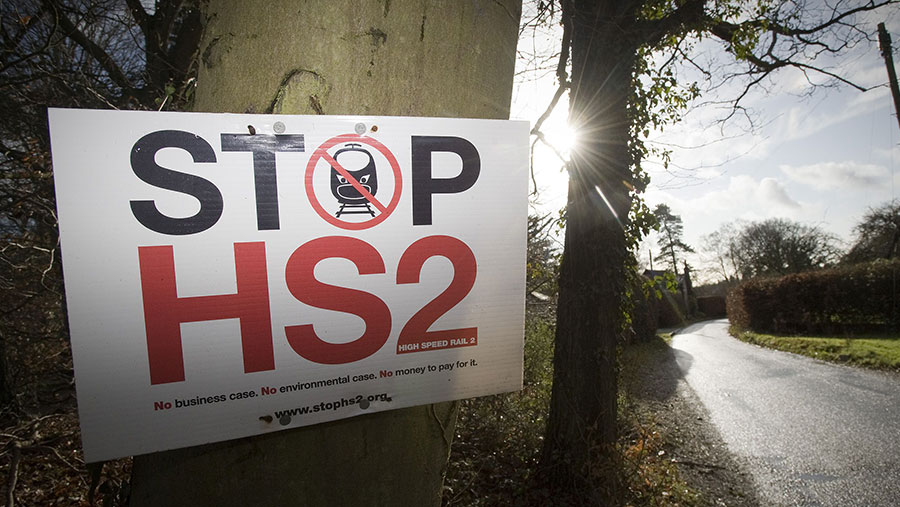Farmers will get chance to petition HS2 bill next month
 Ben Cawthra/REX/Shutterstock
Ben Cawthra/REX/Shutterstock Landowners affected by the West Midlands to Crewe stretch of the HS2 high speed rail link are expected to be able to formally petition against the project from the end of the month.
The petitioning process gives people, groups, businesses and organisations who will be directly affected by Phase 2a of the development the right to petition against the High Speed Rail (West Midlands – Crewe) Bill.
This involves submitting a document outlining how the hybrid Bill will affect them and explaining how they believe it should be altered to meet their objections.
See also: Compulsory purchase of farmland: Claim what you are owed
Timetable
The High Speed Rail (Phase 2a) Bill had its first reading in July 2017, and its second reading in the House of Commons is expected imminently.
Assuming MPs vote in favour of the Bill, the next stage will be for a select committee to be set up to consider any petitions that have been submitted.
Jonathan Bell, a graduate surveyor with Rostons, said petitions could be submitted directly or by an agent and he expected the submission period to run throughout February.
“The petitioning process is vital to protect the interests of those affected, ensuring that both the government and HS2, are aware of the impacts that HS2 will have,” he said.
Guidance
Select committee officials have already published Information and guidance on the petitioning process to enable people to start preparing their submission.
For Phase 1 of the Bill, petitioners were required to submit their petitions in person at the House of Commons, many travelling great distances to do so.
However, this time an online system for submitting petition documents has been introduced.
For those who wish to do so, it will still be possible to submit a petition in person as well as by post.
There is an administrative charge of £20 for any submission to be considered by the select committee.
What to put in a petition?
The petition should:
- Say who you are, where you live (or what your business is and where its premises are if it is your business which is affected). If you are petitioning as a group or organisation, the petition should also mention what the group or organisation does and the size of its membership.
- Describe how you are specially and directly affected by the Bill, and explain how the Bill will particularly harm you.
- State what should be done to reduce the adverse effects the Bill has on you and, if possible, how the Bill should be amended to achieve this.
- The petition forms the basis of your case to the select committee, so it must include all the objections which you wish to raise. Matters can only be raised in committee if they are referred to in the original petition.
The petition should not:
- Include any pictures or photographs – text only is required. However, photographs may be used if called to speak to the select committee.
- Include political comments, raise general objections to the Bill or focus on broad issues of policy. Petitioners are asked to concentrate instead on the specific ways in which the Bill specially and directly affects them or those they represent.
